|
Sadly I have had to update this article
because in April 2020 the business went into administration.
Yet another victim of foreign competition and the coronavirus
outbreak.
Bev Parker
Walsall’s longest surviving foundry
was Kirkpatrick’s, in Frederick Street, and across the
road in Charles Street. It had been in operation since 1855.
In the 1820s, brothers John and Thomas
Kirkpatrick moved from their home in Kirkcudbrightshire and
settled in Walsall. In 1832 they were joined by their
younger brother William, born in 1817. He became an
ironfounder, and in 1855 set himself up in business. The
foundry was originally part of the Frederick Street site,
but re-located across the road in Charles Street, where it
has been since the 1930s or 40s. The foundry's modern
electric induction furnace, has
produced large amounts of high quality black iron door and
window furniture. The firm employed around 70 people and
exported products throughout the world. |
|
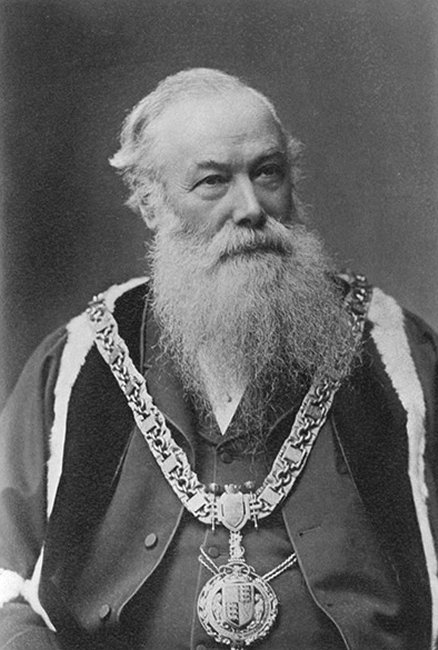
William Kirkpatrick, Mayor of
Walsall. |
William Kirkpatrick began producing Gothic and Medieval
style iron work and door furniture, which was very popular at
the time. He had a strict Covenanting upbringing and became
involved in the church, and later joined the Walsall School
Board.
In 1877 he was elected to Walsall Council, and became
a Justice of the Peace. In 1886 he became Mayor, a post he
held until his death in 1887.
After his death, William was succeeded
in the business by his son Vincent who oversaw the
incorporation of the firm in 1901. Kirkpatrick Limited
became well known as a manufacturer of a vast range of high
quality builders’ ironmongery, much of which was in
production until recent times. During both world wars the firm concentrated on items
for the war effort, including thousands of fittings for
ammunition and storage boxes. |
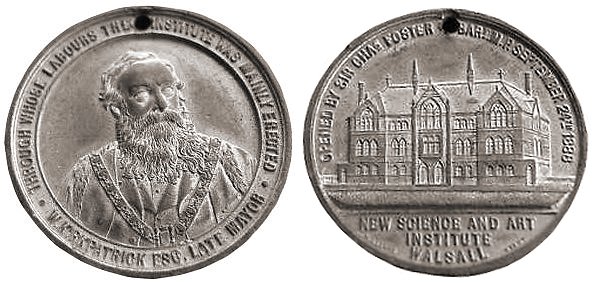
One of William Kirkpatrick's many achievements
during his time as Mayor of Walsall was the building
of the Science and Art Institute in Bradford Place.
This medallion commemorates the opening of the
institute on the 24th September, 1888. |
|
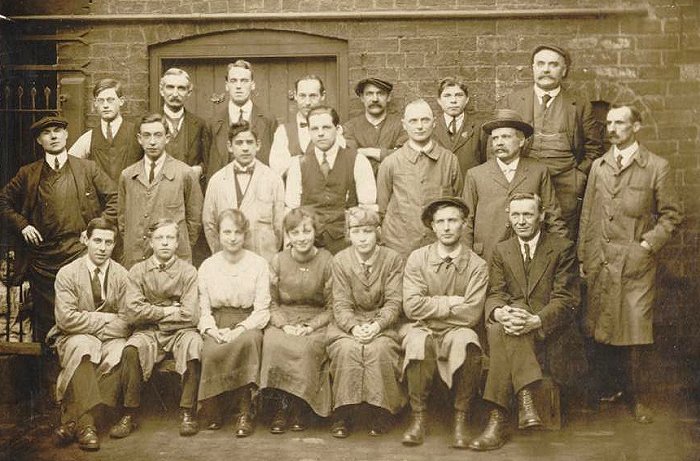
An early photograph of some of the
staff. Courtesy of Stephen Preston.
Back row left to
right: C. Skett, I. Evans, A. Oakley, J. Carter,
T. Cooper, T. Kelly, and J. Foxley.
Middle row left to right: J. Leadbeater, T.
Edge, W. Edginton, C. A. Bickley, A. Dunam, J.
Steadman, and
J. Bridgewater.
Front row left to right: G. E. Moss, E. Booker,
M. Kirk, G. Walker, A. Dkins, W. Thornton and A.
J. Philpot. |
|
|
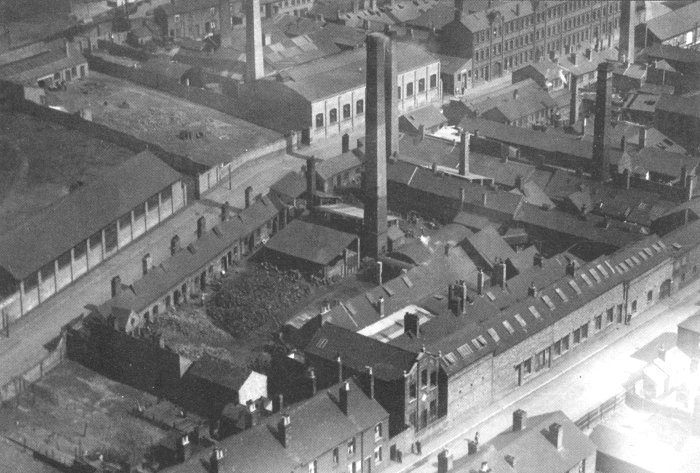
An aerial view of the factory
from the 1930s. |
|
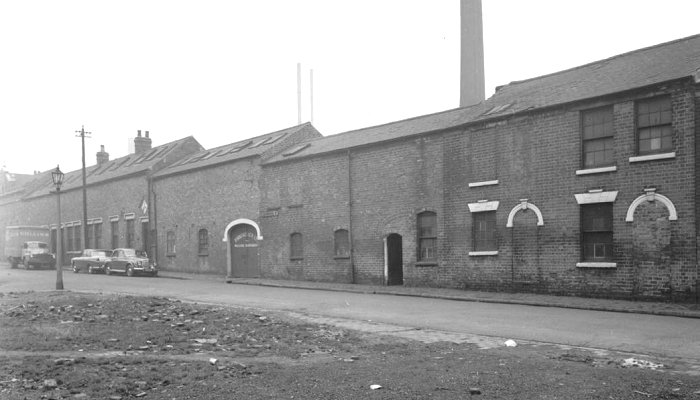
An old view of the Frederick
Street factory. Courtesy of Stephen Preston. |
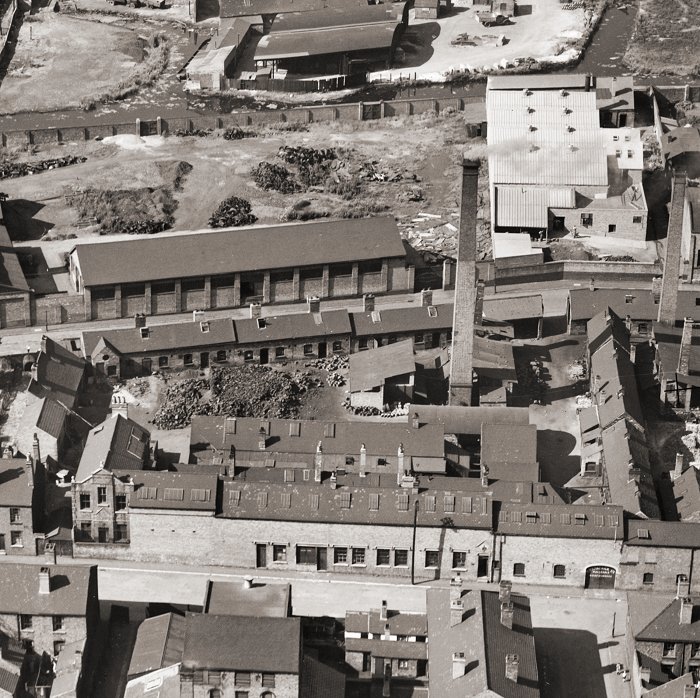
The factory in the mid 1940s.
|
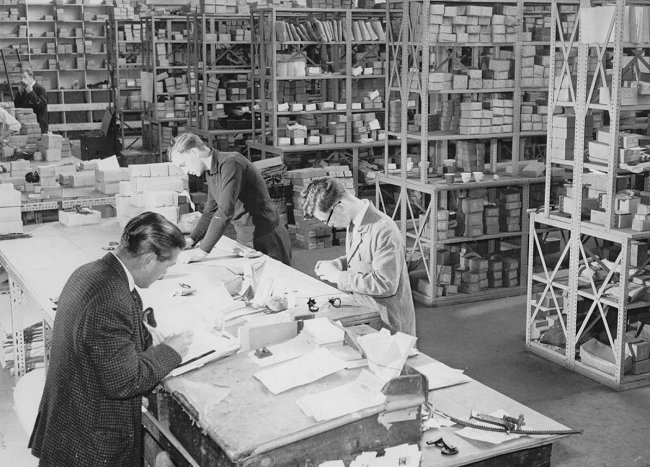
A busy day in the warehouse.
Courtesy of Stephen Preston. |
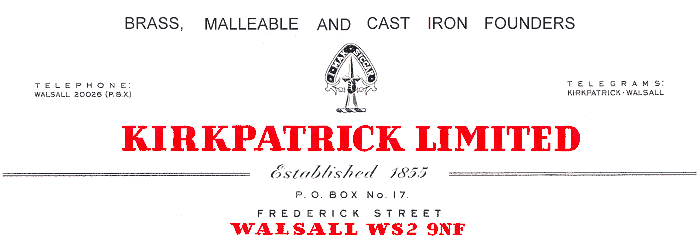
An old company letterhead bearing the firm's
motto - I mac siccar - I make certain.
| Over the years the firm has produced almost every kind
of builders' ironmongery. The vast range of products has
included Gothic handles and latch furniture, lever handles,
door pulls, bolts, chains, letter plates, postal handles,
door knobs, sash handles, lifts and pivots, thumb screws,
cupboard knobs and buttons, hasps and staples, locking bars,
hinges, cleat hooks, refrigerator fittings, casement stays
and fasteners, quadrant stays, hat and coat hooks, handrail
brackets, wire strainers, trestle hinges, pipe clips, stair
treads, pulleys, bucket brackets, ventilators, spanners,
rowlocks, blind fittings, manger rings, stable fittings,
latches, and much more. Many of the items were still in
production at the beginning of 2020. For many years the foundry would cast almost any
small item for a customer, but as the demand for the firm’s
high quality builders’ ironmongery grew, production was
concentrated in this area.
The firm has been a good
employer, the skilled workforce included members of families
who have worked there for several generations. The
products were in great demand and Kirkpatrick was
the only manufacturer in the country of traditional
black ironmongery. Their handmade products were British
from start to finish. |
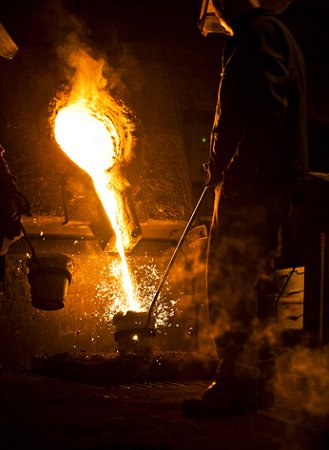
Filling ladles. Courtesy of
Stephen Preston. |
| We now live in a throw-away society, and are used to
buying products that all too soon reach the end of their
useful life. Kirkpatrick's products are different, they
really do last a lifetime. The company sometimes
received items for repair, which turned out to be cheap
inferior foreign copies, not made to Kirkpatrick's high
standard. The company even received a foreign copy of
its own catalogue in the post, advertising what were in
fact, second-rate copies of the firm's products. There
was a time, not that long ago, when we were proud of our
home-made products, carrying the 'Made in Britain'
label. Kirkpatrick's products were something that we can
still be justifiably proud of today. We not only made
the best ironmongery, but made it here in Walsall, in
the heart of the Black Country. |
| The following
photographs were taken on a visit to the factory in
2015, kindly arranged by Stephen Preston: |
|
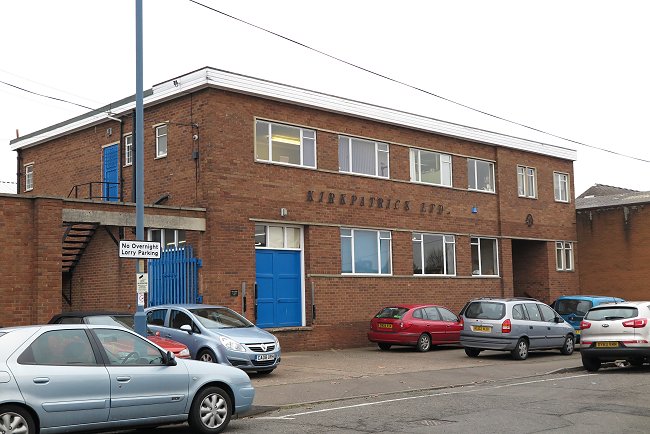
The company's offices in Frederick
Street. |
|
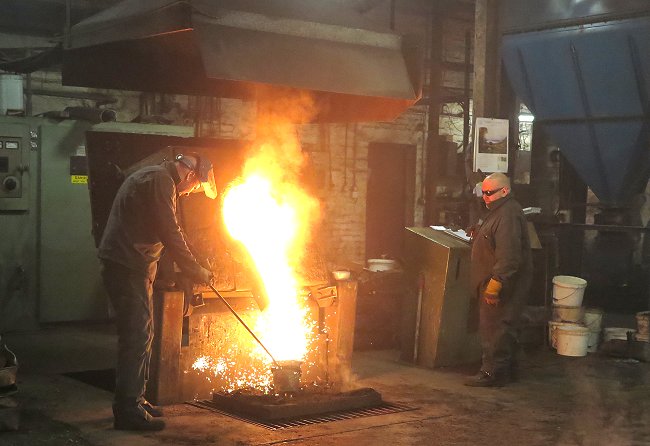
Filling a ladle with molten metal
from the furnace. |
|
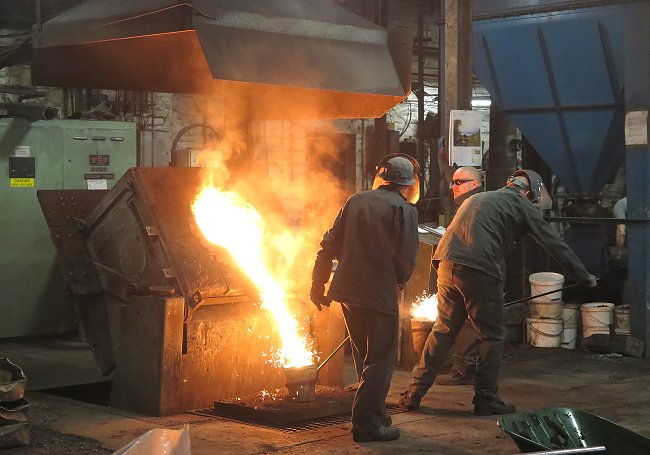
Another view of the furnace as two
of the moulders fill their ladles. |
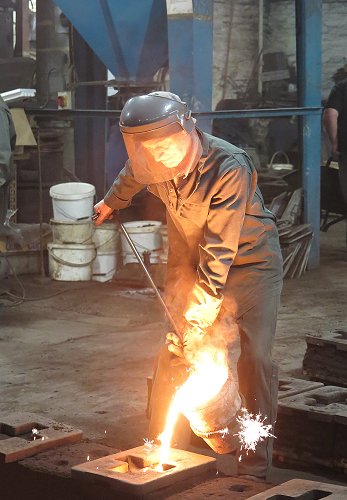 |
|
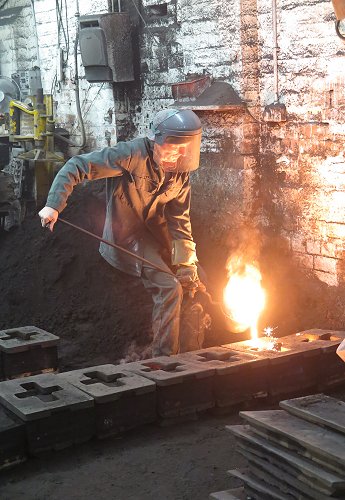 |
|
Casting,
a busy time in the foundry. |
|
|
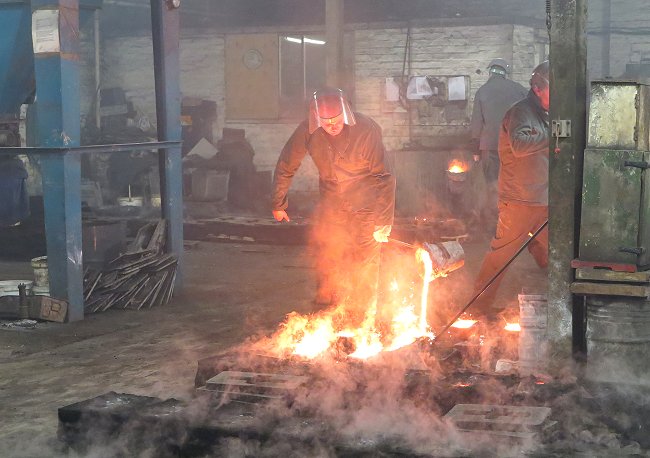
Filling some of the moulds with
molten metal. |
|
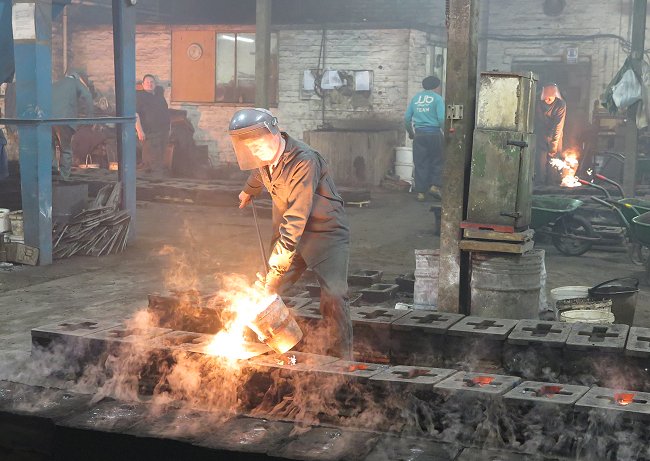
Another view of one of the
moulders at work. |
|
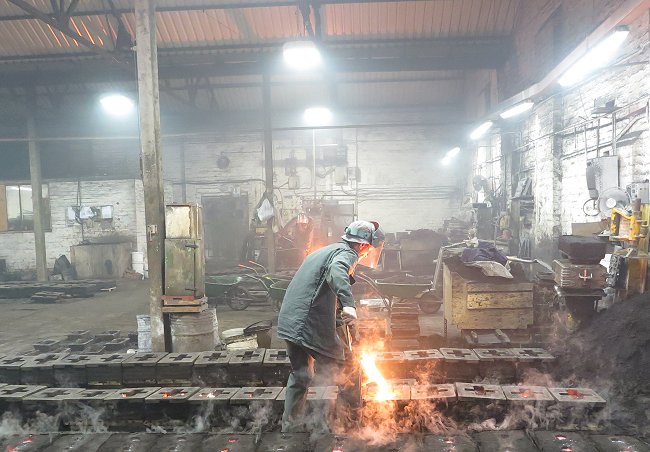
Casting is always a spectacular
sight. |
|
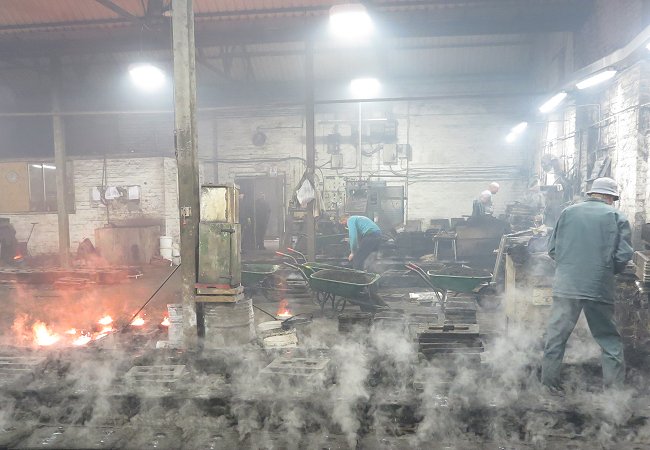
The castings begin to cool. |
|
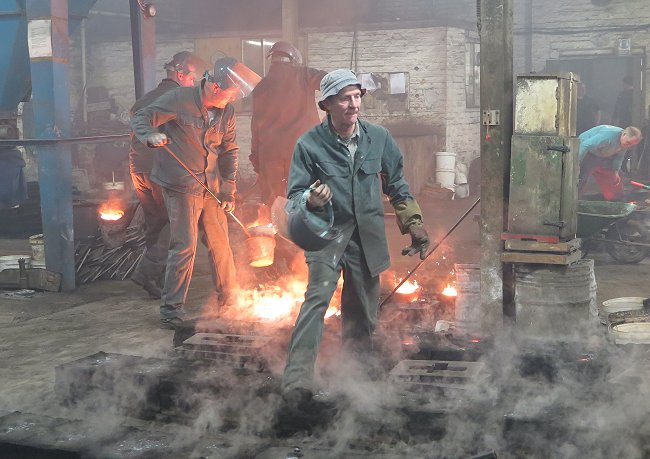
The end of the morning's casting. |
|
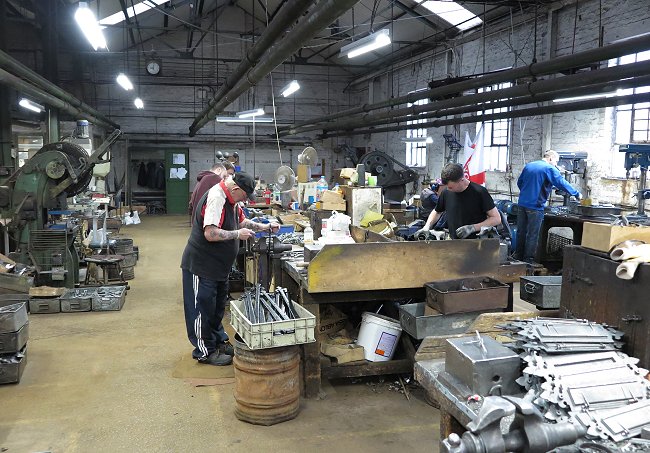
Finishing off, and assembling some
of the many products. |
|
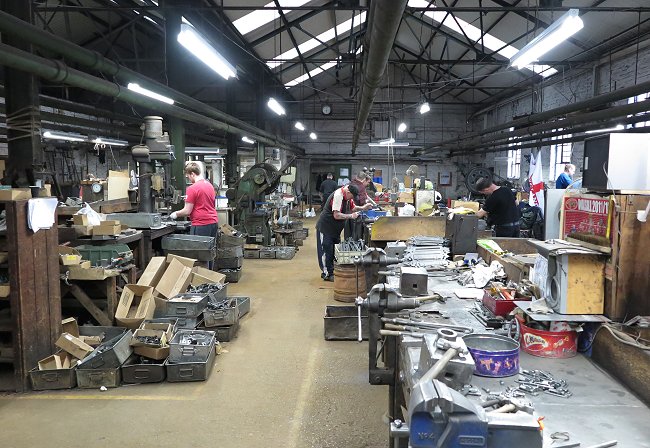
Another view of the assembly area. |
|
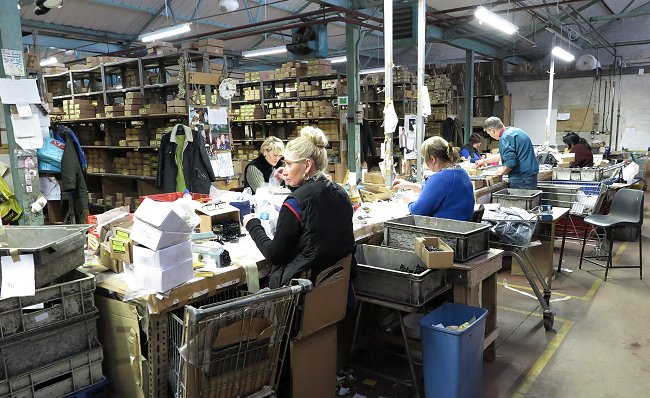
A corner of the packing department
from where products were sent all over the world. |
| |
|
View some of the products
from
the company's 1925 catalogue |
 |
| |
|
|
A few of the company's vast
range of products from the 1950s: |
|
Fittings for doors, cupboards,
gates, and drawers etc.
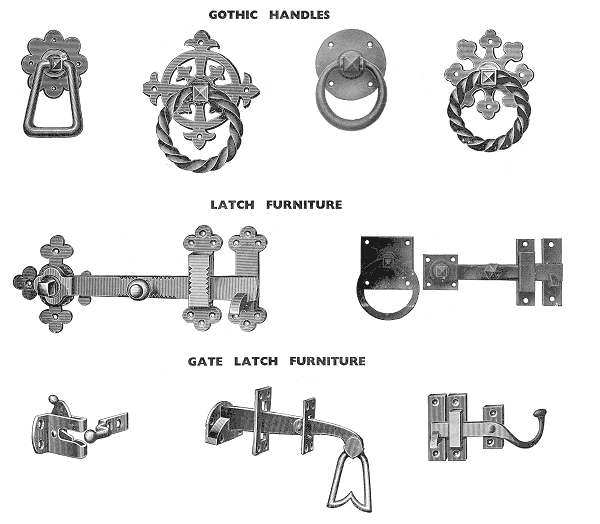
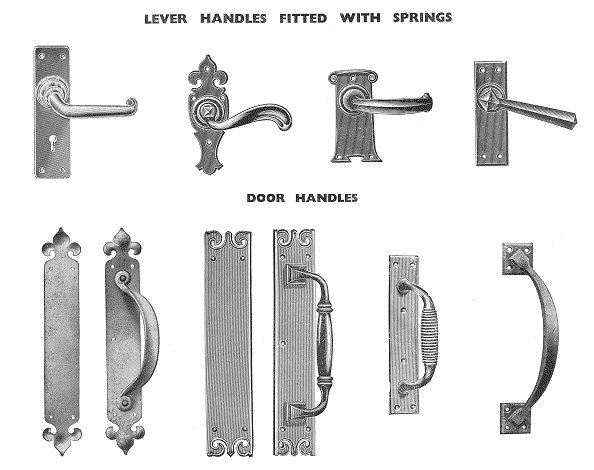
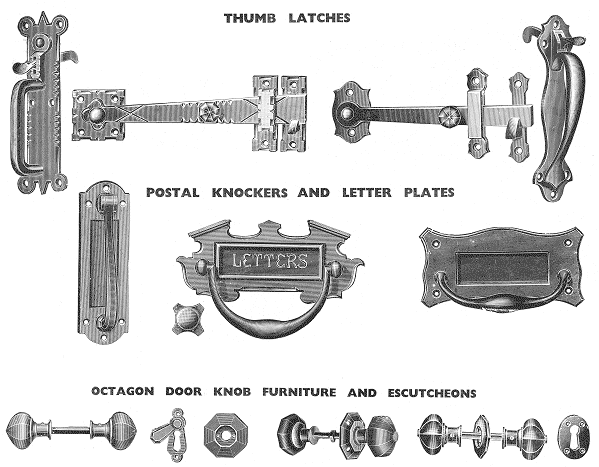
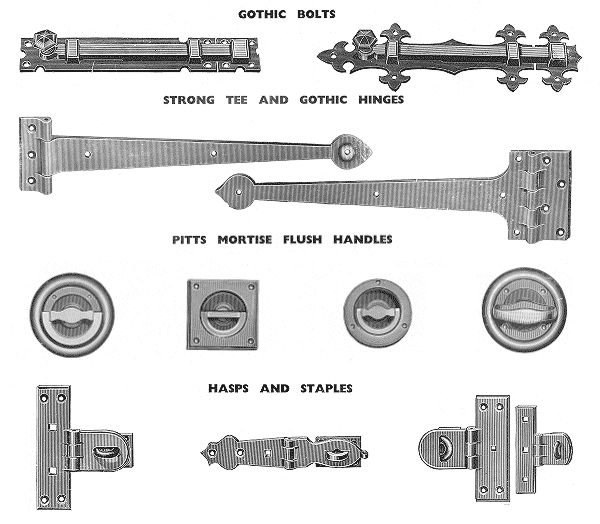 |
|
|
Fittings for casements, sashes,
skylights, fanlights, etc.
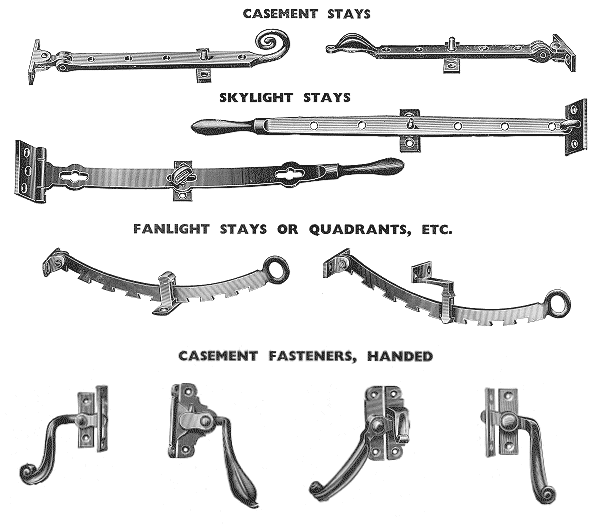
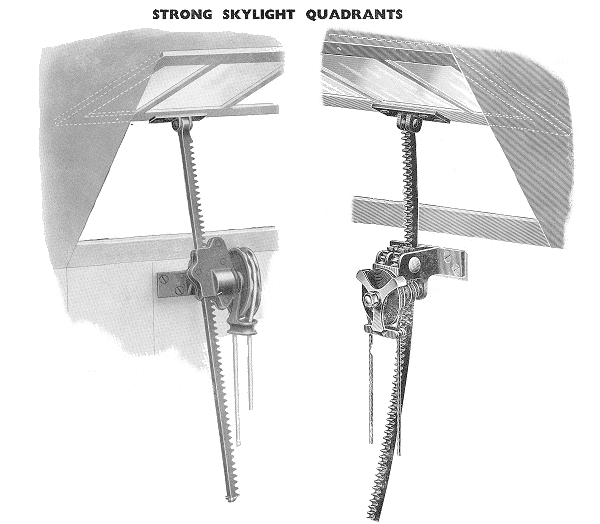
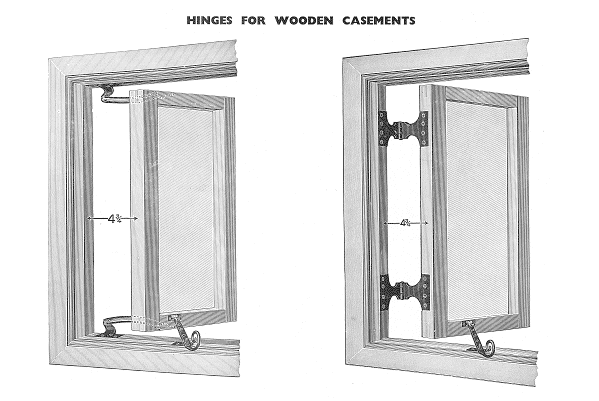 |
|
|
Miscellaneous articles for
trade and domestic purposes:
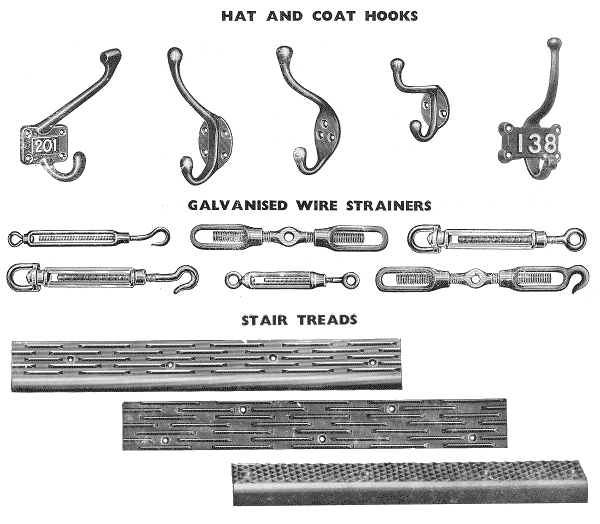
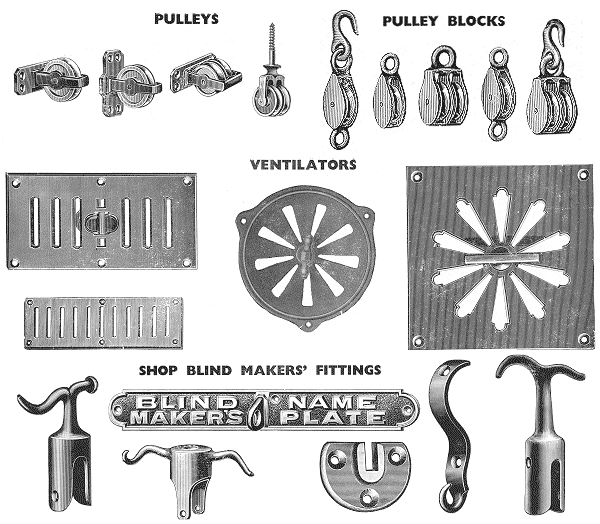
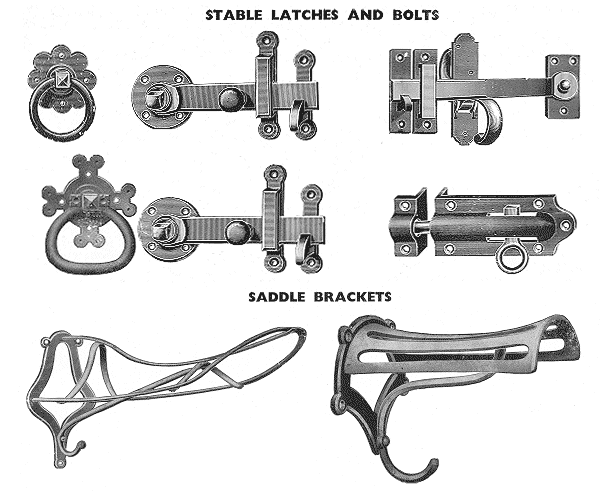 |
|
|
Cast-iron goods:
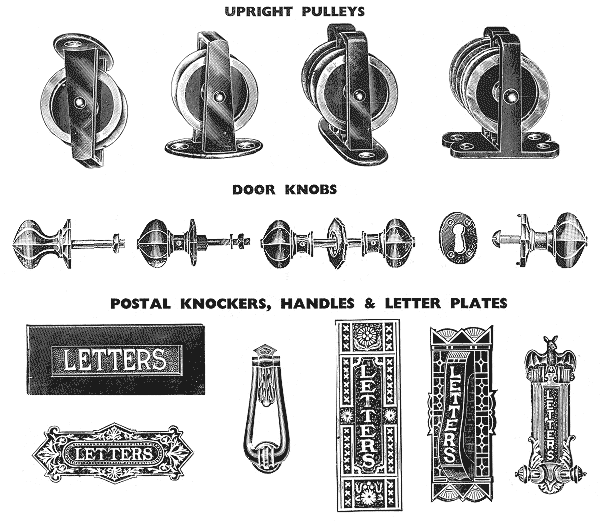 |
|
| A few of the vast range
of products, recently in production: |
| Sadly, in recent times, the company has suffered
from increased foreign competition that resulted in a
loss of orders. The company had an annual turnover of
around £1.65m, but the recent long-term closure of many
markets due to the coronavirus outbreak, resulted in the
business going into administration. This led to a loss
of 50 jobs. Administrators were appointed on the 16th
April, 2020 and a meeting of the creditors was planned
for the 9th June.
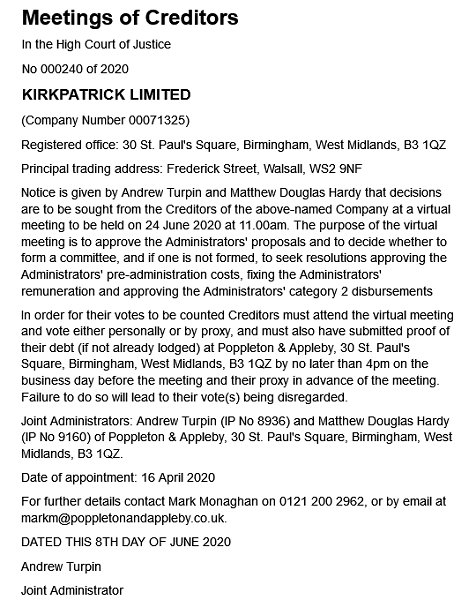
From The Gazette.
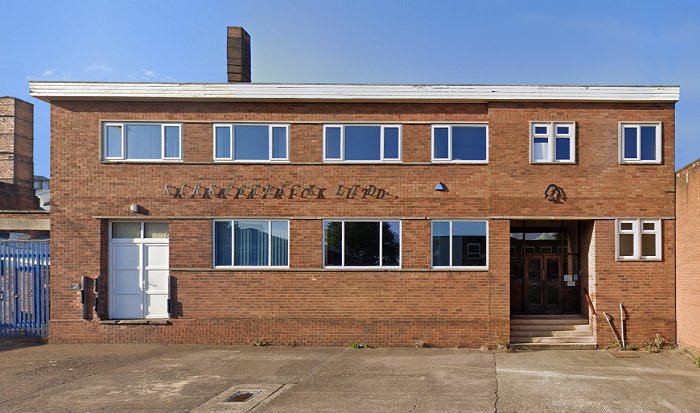
The empty building, now facing an
uncertain future.
We are now in a time of great
depression, when manufacturing would help with our
much-needed recovery. It is sad that British
manufacturers don't receive a suitable helping hand.
Their contribution would greatly benefit our ailing
economy.
The closure was a terrible blow for everyone at the
company, who had worked so hard to ensure that it would
have a long-term future. Foundries in the Black Country
are now few and far between. Walsall can be justifiably
proud of Kirkpatrick's wonderful record. |
 |
Return to
the
previous page |
|